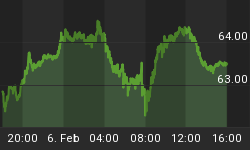In the onging Brexit debacle creating a lack of clarity over the future of European trade relations, France may end up getting cut out of important trade routes that bring billions in revenue—and Paris is now up in arms.
France has vehemently slammed the European Commission‘s proposal to exclude French ports from the planned re-routing of a strategic trade corridor between Ireland and mainland Europe after Brexit.
The new route proposed by the Commission would link Ireland by sea with Dutch and Belgian ports, including Zeebrugge and Rotterdam. Meanwhile, France‘s Calais and Dunkirk ports would be circumvented.
French Transport Minister Elisabeth Borne excoriated the move, which could prevent France from taping billions of euros in an EU grant, as “not acceptable”.
In a stern letter to European Commission transport authorities, she said France and Ireland's “important trade channels” had not been taken into account: “The geographical proximity between Ireland and France creates an obvious connection to the single market...Surprisingly, the Commission proposal in no way takes this into account… This proposal therefore is not acceptable to France.”
For France, much is at stake, including potentially billions in revenues from the ports themselves, jobs and funding for infrastructure from EU programs. Related: Bitcoin Could Challenge Gold As Major Asset Class
Now, the bulk of Ireland’s trade with the continent stretches via Great Britain in trucks. However, with Brexit looming within the next 8 months, opaqueness lingers not only on the UK‘s future trade relations with the bloc, but also on the nature of the Irish Republic’s border with the British province of Northern Ireland.
While the UK can no longer be part of EU routes after Brexit, bypassing it prevents Irish exports to Europe from getting caught up in British customs.
France’s Roscoff and Cherbourg, the other major ports--both of which are nearer to Ireland--also would be bypassed if the plan goes into effect, meaning that they and the transport infrastructure serving them would not be eligible for additional funding from Brussels to upgrade their facilities.
The European Commission counter-argues that France’s exclusion from Brexit trade route reflects traffic flows.
“The Commission proposal is based on the current transport flows,” said a Commission spokesman. “It makes an adjustment to the corridor to ensure continuity of these traffic flows, which mainly go through certain core ports.”
There are currently no regular maritime connections between Ireland’s main ports at Cork and Dublin and French terminals, but services do run to Rotterdam and Antwerp and between Dublin and Zeebrugge, the spokesman said.
Brittany Ferries runs a direct overnight freight route from Cork to Roscoff every Saturday for arrival in France on Sunday morning. Irish Ferries runs a weekly service from Dublin to Cherbourg, as well as services from Rosslare to Roscoff and Cherbourg every two days. The crossing takes 14 hours.
The Commission, however, says that Roscoff and Cherbourg are too small to be included in an EU priority corridor.
Related: Google In Talks With Tencent Over Cloud Business
The existing route runs from Edinburgh and Dublin down to Marseille. Calais, along with the Dunkirk and Le Havre ports, are already listed in the North Sea-Mediterranean corridor and so can continue to obtain money from the EU’s flagship infrastructure funding program, the Connecting Europe Facility.
Other French ports excluded from the corridor — including Brest along with Roscoff and Cherbourg — can still seek funding from smaller EU programs aimed to support a “Motorways of the Sea” initiative.
France is said to be preparing to veto the re-routed trade plan between Ireland and Europe as D-Day for Brexit is only eight months away.
By Linas Jegelevicius for Safehaven.com
More Top Reads From Safehaven.com
















